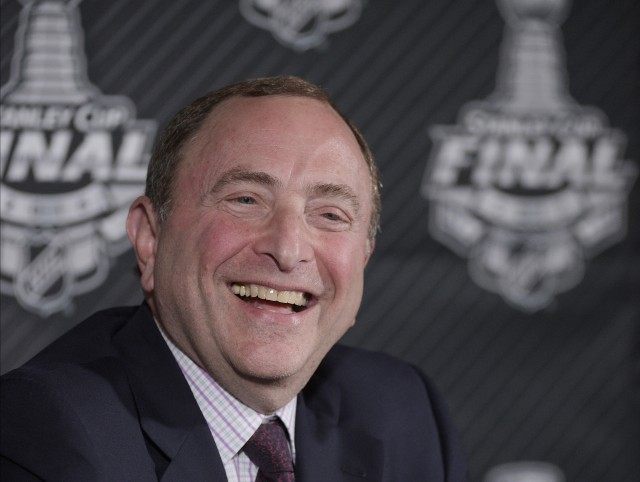Police arrested Ryan Malone, then of the Tampa Bay Lightning, for possession of cocaine in April of this year. That same month, cops apprehended Jarret Stoll, then of the Los Angeles Kings, and charged him with felony cocaine possession.
In response to these arrests, the NHL announced the implementation of a testing program for cocaine by the end of this season, according to an initial report by Renaud Lavoie of TVA in Canada.
The cocaine testing will become a part of the league’s current substance abuse program. According to The Sporting News, the league’s substance abuse program has four steps:
Stage 1 is for players who volunteer for treatment and aren’t suspended as they seek help, while Stage 2 is for players who violate the first stage and are suspended without pay as they undergo treatment.
Stage 3 is for offenders of the second stage and carries a minimum six-month suspension without pay. Finally, Stage 4 is for offenders of the third stage and carries a one-year suspension without pay. At that point, the decision regarding the player’s reinstatement is determined by the NHL and NHL Players’ Association.
A report by TSN in October of this year uncovered that the NHL screened only roughly 1/3 of the 2,400 samples collected for cocaine.
Deputy NHL Commissioner Bill Daly admitted that cocaine use was up in the league, but said that the number was still a relatively low number of NHL users.
Daly told TSN, “I wouldn’t say it’s a crisis in any sense. What I’d say is drugs like cocaine are cyclical and you’ve hit a cycle where it’s an ‘in’ drug again.… I’d be shocked if we’re talking about a couple dozen guys. I don’t want to be naïve here … but if we’re talking more than 20 guys I’d be shocked. Because we don’t test in a comprehensive way, I can’t say.”
Cocaine use among NHLers is nothing new. Former New York Ranger and Calgary Flames player Theo Fleury wrote a book in 2009, which went to #1 on the Canadian bestsellers list for non-fiction, detailing his cocaine use while playing in New York. In 1990, four-time Stanley Cup winning Edmonton Oilers Goalie Grant Fuhr admitted struggles with a cocaine addiction for seven years. Fuhr’s addiction was so bad that his ex-wife said that during the Oilers’ first Stanley Cup run in 1984 drug dealers called Fuhr’s home and threatened him with physical violence if he didn’t pay up for drugs he had bought.

COMMENTS
Please let us know if you're having issues with commenting.